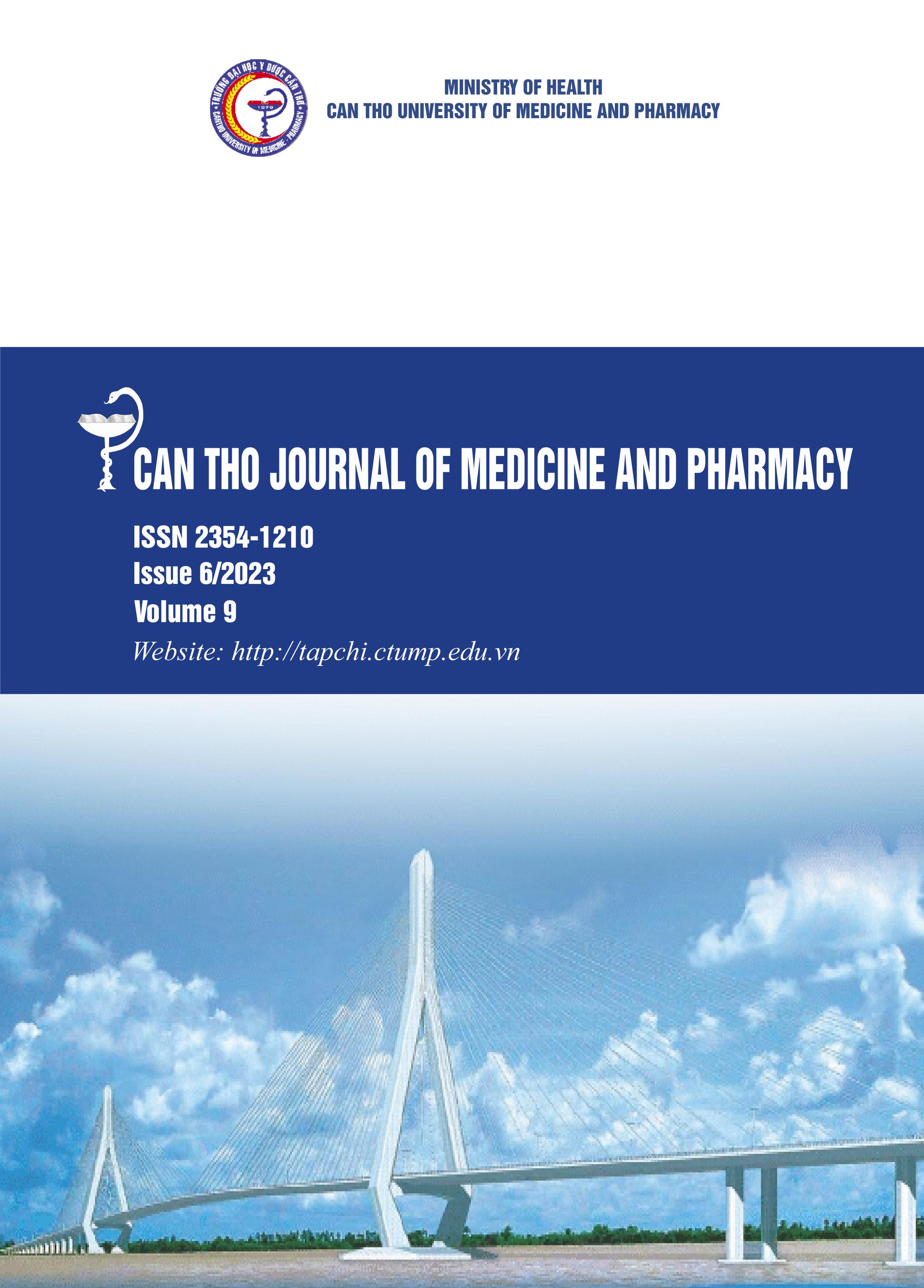ATTITUDES AND PRACTICES TOWARDS THE CREDIT-MODULE SYSTEM AMONG UNDERGRADUATE STUDENTS
Nội dung chính của bài viết
Tóm tắt
Background: The Credit-Module System (CMS) has been applied in various countries in order to increase students’ independence and all-round competence. Based on CMS, students can take courses of their choice, learn at their own pace, and take additional courses. Students are the center of this educational system. Thus, undergraduate students’ attitudes and practices towards this system are critical in determining their academic achievement and quality of education. Objectives: to investigate the attitudes and practices of undergraduate students towards CMS. Materials and methods: A cross-sectional descriptive correlational design was used. The sample size comprised 242 undergraduate students at Can Tho University of Medicine and Pharmacy, including nursing, midwifery, medical laboratory technology, and medical imaging technology, who have experienced CMS for at least 1 year. Students’ attitudes and practices regarding CMS were examined using a 5-likert questionnaire including 20 items for attitudes and 37 for practices. Results: 222 (91.7%) students had positive attitudes towards CMS, with the mean score of the attitude was 79.4+13.5/100. 91.7% of students had positive attitudes towards the advantages of the CMS, and 89.7% of students were willing to participate in learning activities of the CMS. In practice, students also showed a good level (mean=147.4+17.6/185). 81.8% and 18.2% of students were at a good and moderate level of practice, respectively. Among subscales of practice, students’ practices with examination and practicum activities had the highest scores. Meanwhile, practices with theory classes were the lowest. There was a significantly positive association between students’ attitudes and practices of CMS. Conclusions: Most undergraduate students had positive attitudes towards CMS. Despite showcasing a generally good level of practice among student respondents, practices with theory classes should be enhanced. Support and counseling services are recommended to improve students’ positive attitudes and good practices towards CMS.
Chi tiết bài viết
Từ khóa
Credit-Module System-CMS, Educational system, Attitude, Practice
Tài liệu tham khảo
Module System. European Journal of Innovation in Nonformal Education. 2022. 2(1), 364-365.
2. Normurodovich A.B. Improvement Of Didactic Adaptation of Young Teachers to Conditions of Higher Education Based on Credit Module System. Eurasian Journal of Learning and Academic Teaching. 2022. 9, 44-48.
3. Mahmidovich X.N., and Shukurovich B.F. The Role of the Credit Module System in European Higher Education. Middle European Scientific Bulletin. 2021. 2012(16), 76-81.
4. Sarkar K. Attitude of Graduate Students towards Choice Based Credit System. Pramana Research Journal. 2019. 9(10), 34-48.
5. Deuri C. Attitude towards choice based credit system of post-graduate level students in higher education: a study on Gauhati University. International Journal of Interdisciplinary Research in Science Society and Culture. 2015. 1(2), 115-122.
6. Tran A.N. Knowledge, attitude, and practice relating to the credit-module system among undergraduate students at Hai Phong University. Hanoi University of Public Health. 2020. 80-96.
7. Mahakur S., Baral R., and Meher V. Perception of Teachers and Students towards the Implementation of Choice Based Credit System at Undergraduate Level. Online
Submission. 2019. 7(1), 1-10. https://doi.org/10.15415/iie.2019.71001.
8. Shahin S., and Zheng P. Big data and the illusion of choice: Comparing the evolution of India’s aadhaar and China’s social credit system as technosocial discourses. Social Science Computer Review. 2020. 38(1), 25-41. https://doi.org/10.1177/0894439318789343.
9. Ismoilovna O.F., and Oripovna E.U. Education in Uzbekistan: Credit-module system, new approaches, and views. The American Journal of Social Science and Education Innovations. 2020. 2(12), 287-293. https://doi.org/10.37547/tajssei/Volume02Issue12-50.
10. Han N.T.N., An H.T.T., Doan M.T.K., Dung P.T., Dao H.T.H., Thong N.T., Dien T.L, and Trang D.T.T. Knowledge, attitude, and practice of hand hygiene among nursing student at an Tho Univeristy of Medicine and Pharmacy. Can Tho Journal of Medicine and Pharmacy. 2023. 5, 120-125. https://doi.org/10.58490/ctump.2023i5.650.


